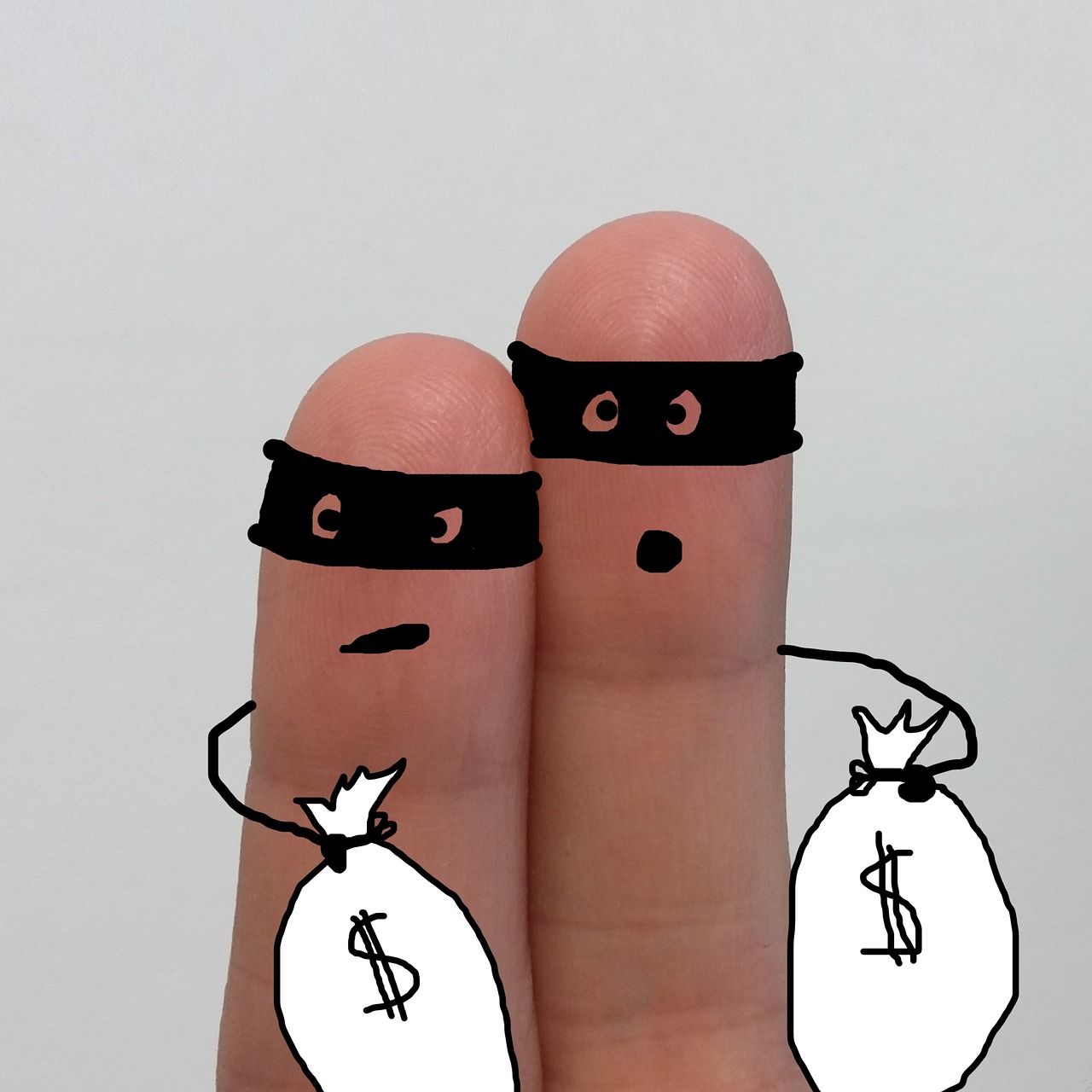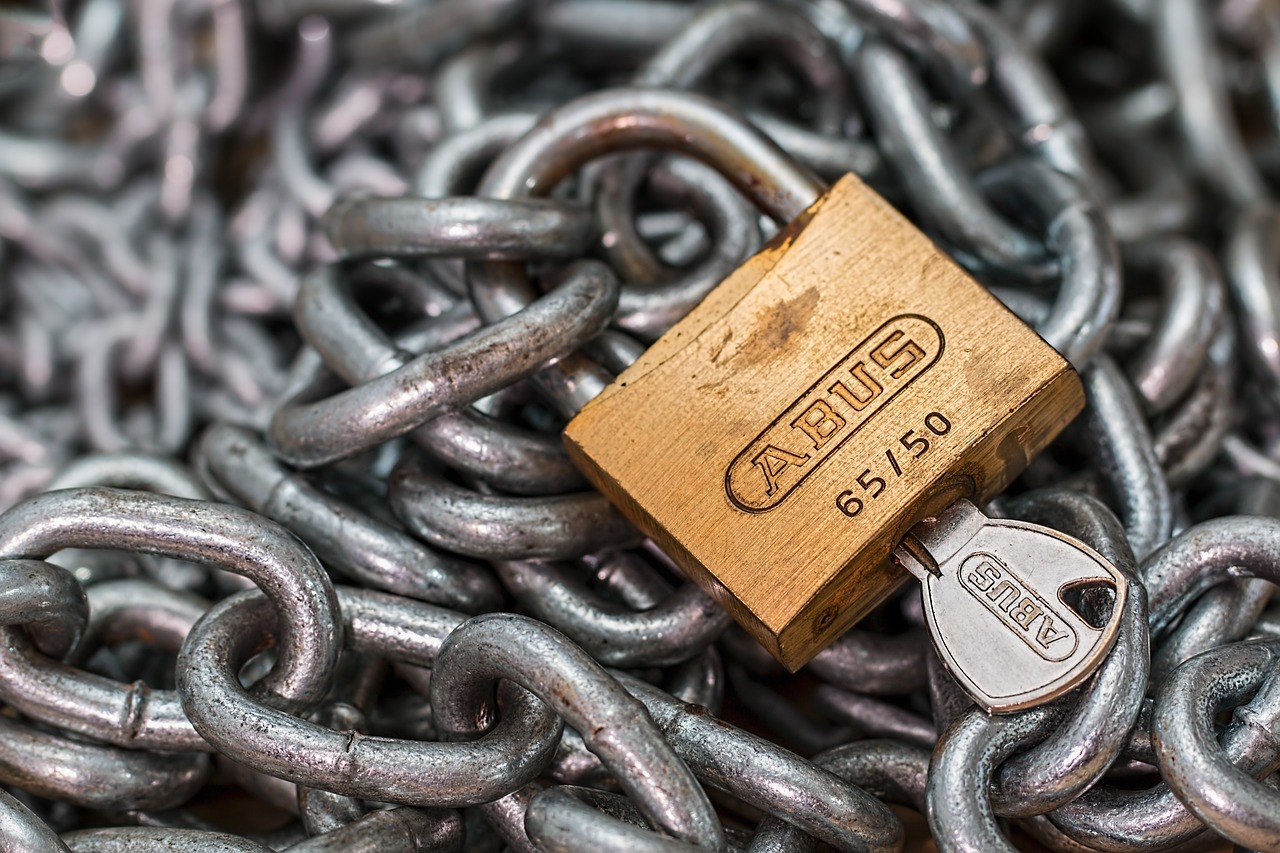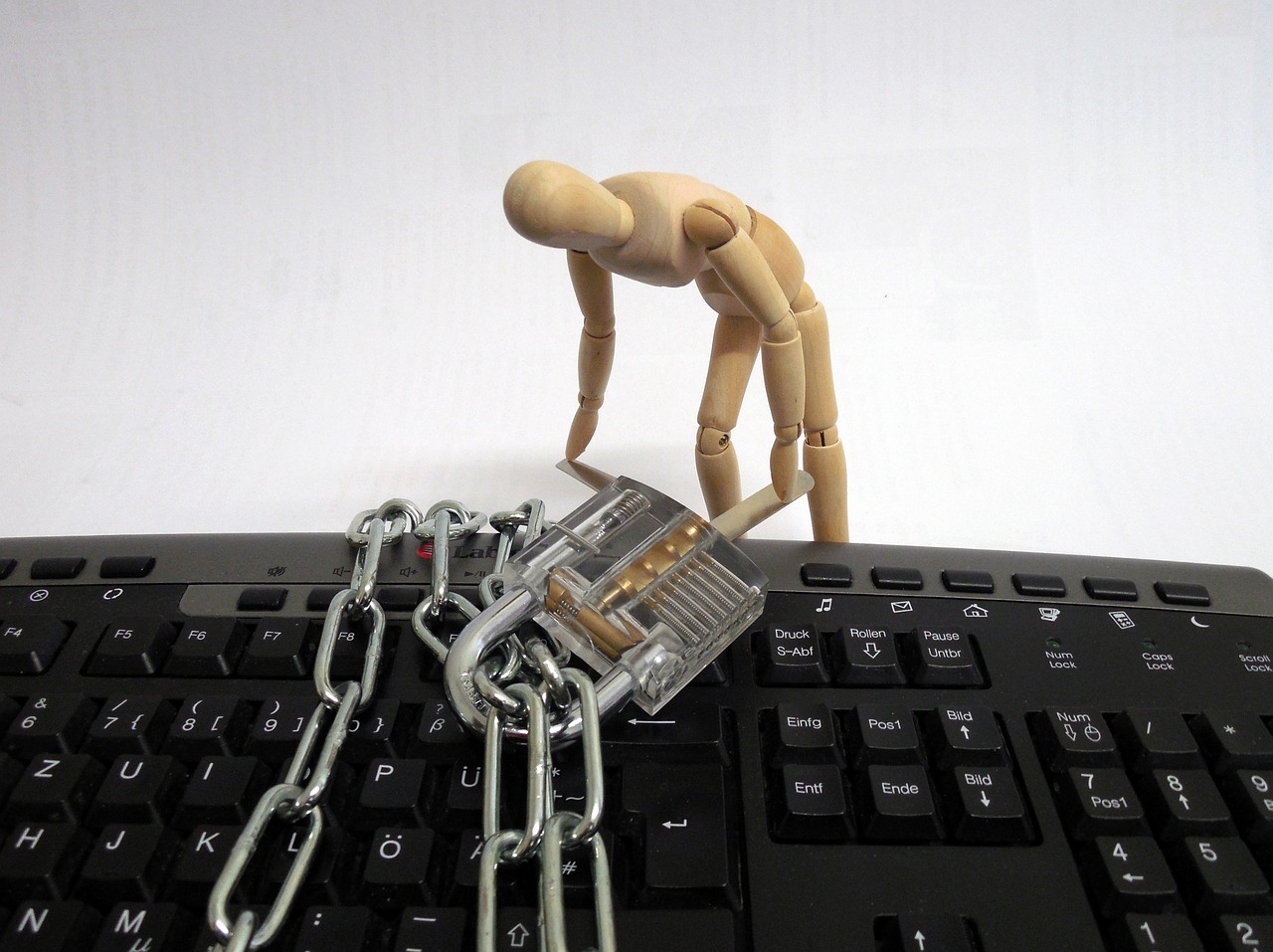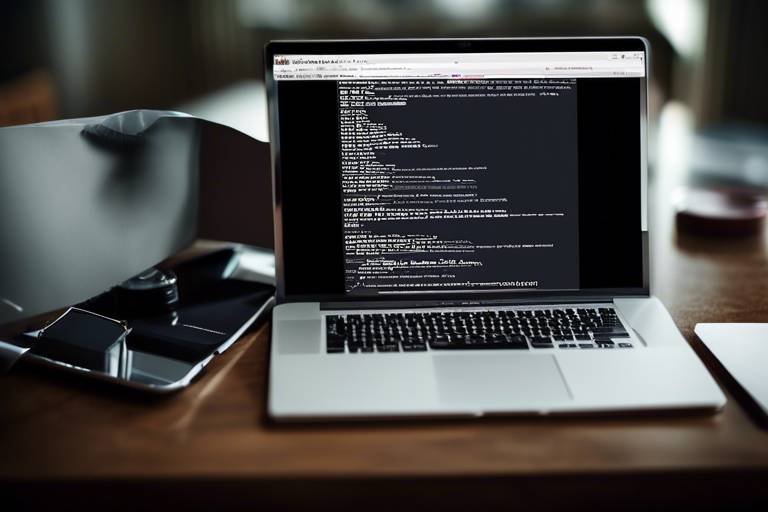Understanding Identity Theft and How to Prevent It
Identity theft is a pervasive issue that affects millions of people each year. The term refers to the unauthorized use of someone’s personal information—such as Social Security numbers, credit card details, or bank account information—often for financial gain. Imagine waking up one day to find out that someone has been living a double life using your identity! The implications of this crime can be devastating, leading to financial ruin, emotional distress, and a long road to recovery. In a world where our information is constantly shared and stored online, understanding identity theft and its prevention is more crucial than ever.
At its core, identity theft can disrupt not just individual lives but also the fabric of society. It can lead to a loss of trust in financial institutions, increased costs for businesses, and a general sense of insecurity among the public. In this article, we will explore the different types of identity theft, the warning signs to watch for, and the proactive steps you can take to safeguard your personal information. The more you know, the better equipped you will be to protect yourself and your loved ones from this growing threat.
As we dive deeper into the topic, think about how often you share your personal information online. Are you cautious about who you share it with? Do you regularly check your financial statements? The answers to these questions can be the difference between being a victim and staying safe. By the end of this article, you’ll not only understand the various forms of identity theft but also have a toolkit of strategies at your disposal to prevent it.
Identity theft involves the unauthorized use of someone’s personal information, typically for financial gain. Understanding its definition is crucial to recognizing its impact on individuals and society. The act can take many forms, from stealing credit card information to using someone else's Social Security number to open new accounts. Each instance is a violation of privacy and trust, highlighting the importance of vigilance in protecting personal data.
Identity theft can manifest in various forms, including financial, medical, and criminal identity theft. Each type poses unique challenges and risks that individuals must be aware of to protect themselves. For example, financial identity theft can lead to significant monetary losses, while medical identity theft can result in incorrect medical records that may affect future healthcare. Being informed about these types can help you recognize potential threats.
Financial identity theft occurs when someone uses another person's financial information to commit fraud, such as opening credit accounts or making purchases. This type can lead to significant financial loss and damaged credit scores. Imagine checking your bank statement only to find charges for items you never purchased! The stress and confusion can be overwhelming, making it essential to recognize the signs early.
Recognizing the signs of financial identity theft, like unexpected charges or unfamiliar accounts, is essential. Early detection can help mitigate damages and initiate corrective actions promptly. Some common signs include:
- Unfamiliar transactions on your bank or credit card statements
- Receiving bills for services you did not use
- Being denied credit unexpectedly
If you notice any of these red flags, it's crucial to take immediate action to protect your financial health.
Implementing preventive measures, such as monitoring credit reports and using strong passwords, can significantly reduce the risk of financial identity theft. Awareness and proactive steps are key to safeguarding personal finances. For instance, setting up alerts for transactions can help you stay informed and respond quickly to suspicious activity. Moreover, consider using two-factor authentication for your online accounts to add an extra layer of security.
Medical identity theft happens when someone uses another person's medical information to receive healthcare services. This can lead to incorrect medical records and complications in future healthcare. For example, if someone uses your information to receive treatment, your medical records may reflect conditions or medications that are not yours, potentially endangering your health.
Identifying warning signs of identity theft early can help individuals take action before significant damage occurs. Common indicators include unusual account activity and receiving unfamiliar bills or statements. Being vigilant about your personal information is the first step in prevention.
Regularly monitoring bank and credit accounts is vital in detecting potential identity theft. Setting up alerts for transactions can help individuals stay informed and respond quickly to suspicious activity. Keeping a close eye on your financial accounts is like having a security camera for your money—it's always better to be safe than sorry!
Checking your credit report at least annually is essential for spotting inaccuracies or unauthorized accounts. This practice can help individuals maintain their financial health and detect identity theft early. You’re entitled to one free credit report per year from each of the three major credit reporting agencies. Utilize this to stay ahead of potential threats!
Taking proactive steps to prevent identity theft can significantly reduce risks. This includes safeguarding personal information, using secure passwords, and being cautious with sharing details online. Remember, your information is like a treasure chest; the more secure it is, the less likely someone will be able to steal it.
Keeping personal information secure involves using encryption, shredding documents, and being mindful of what is shared on social media. These actions can help protect against unauthorized access. For instance, think twice before posting personal details on social media—what seems harmless to you could be a goldmine for identity thieves!
Consider using identity theft protection services that monitor personal information and alert users to potential threats. These services can provide peace of mind and assist in recovery if theft occurs. While they may come with a cost, the protection and support they offer can be invaluable.
1. What should I do if I suspect my identity has been stolen?
If you suspect identity theft, immediately contact your bank, credit card companies, and credit reporting agencies to report the fraud. Freeze your credit to prevent further damage and consider filing a report with the Federal Trade Commission.
2. How often should I check my credit report?
You should check your credit report at least once a year. However, if you suspect fraud, it’s advisable to check more frequently.
3. Are identity theft protection services worth it?
While they come at a cost, many people find identity theft protection services worthwhile for the peace of mind and proactive monitoring they provide.

What is Identity Theft?
Identity theft is a serious crime that involves the unauthorized use of someone’s personal information to commit fraud or other illegal activities. This can include stealing names, Social Security numbers, credit card information, and even medical records. Imagine waking up one day to find out that someone has been living a double life in your name—running up debts, making purchases, and even receiving medical treatment—all while you are left to pick up the pieces. The implications can be devastating, not just financially, but also emotionally and socially.
At its core, identity theft is about deception. The thief takes advantage of your good name to achieve their own ends, often leading to a complex web of financial and legal troubles that can take years to untangle. The impact of identity theft can be far-reaching, affecting your credit score, your ability to secure loans, and even your reputation. It’s crucial to understand the various ways identity theft can occur, as this knowledge is the first step in protecting yourself.
Identity theft can happen to anyone, and it can occur in several ways. Here are some common methods:
- Phishing: This involves tricking individuals into providing personal information through fake emails or websites.
- Data Breaches: Large companies can be hacked, exposing sensitive customer information.
- Mail Theft: Thieves can steal mail containing personal information, such as bank statements or credit card offers.
- Physical Theft: Losing your wallet or having it stolen can lead to identity theft if the thief gains access to your personal documents.
Understanding what identity theft is and how it operates is essential for everyone. By recognizing the signs and being aware of the methods used by thieves, you can take proactive steps to safeguard your personal information. In a world where our lives are increasingly digital, staying informed and vigilant is more important than ever.

Types of Identity Theft
Identity theft can take on a variety of forms, each with its own set of challenges and risks. Understanding these types is crucial for anyone wanting to protect themselves in today’s digital world. At its core, identity theft is the unauthorized use of someone else’s personal information. But what does that really mean? Well, let’s break it down into the most common types of identity theft you might encounter.
One of the most prevalent forms is financial identity theft. This occurs when someone uses another person's financial information, such as credit card numbers or bank account details, to commit fraud. Imagine waking up one day to find out that someone has opened multiple credit accounts in your name, racking up debt you never authorized. It’s a nightmare scenario that can lead to significant financial loss and a tarnished credit score. Financial identity theft is not just about losing money; it can also take a toll on your mental health as you navigate the aftermath of such a violation.
Then we have medical identity theft, which is a less discussed but equally serious type. This happens when someone uses another person's medical information to obtain healthcare services. Picture this: you go to a doctor for a routine check-up, only to find out that your medical records have been altered, listing treatments and medications you never received. This can lead to incorrect medical histories, inappropriate treatments, and can complicate future healthcare decisions. It’s a harsh reminder of how vulnerable our personal data can be, even in the realm of health.
Another alarming type is criminal identity theft. This occurs when someone uses another person's identity to commit a crime, such as theft or fraud. The consequences can be dire, as the victim may find themselves facing legal issues for crimes they didn’t commit. Imagine being pulled over by the police and discovering that there’s a warrant out for your arrest because someone else has been using your identity to break the law. It’s not just a headache; it can lead to serious legal ramifications that take time and effort to resolve.
In addition to these types, there are also child identity theft and synthetic identity theft. Child identity theft occurs when someone uses a child’s personal information, often without the parents' knowledge. This can be particularly devastating because children typically have clean credit histories, making it easier for thieves to exploit them. Synthetic identity theft, on the other hand, involves combining real and fake information to create a new identity. This can be especially tricky to detect, as it often involves the use of someone’s Social Security number along with a fictitious name.
Understanding these types of identity theft is the first step in protecting yourself. Each type presents unique challenges, but by being aware and informed, you can take the necessary steps to safeguard your personal information. So, what can you do to prevent these types from affecting you? Let’s dive into some strategies in the next section.
- What should I do if I suspect identity theft? If you suspect identity theft, it’s crucial to act quickly. Start by reviewing your accounts for unauthorized transactions, then report any fraud to your bank and credit card companies. You should also consider placing a fraud alert on your credit report.
- How can I protect my personal information online? Use strong, unique passwords for different accounts, enable two-factor authentication, and be cautious about sharing personal information on social media.
- Are there services that can help protect against identity theft? Yes, there are various identity theft protection services that offer monitoring and alerts for suspicious activity. These services can provide peace of mind and assist in recovery if theft occurs.

Financial Identity Theft
Financial identity theft is a serious crime that occurs when someone unlawfully uses another person's financial information, such as credit card numbers, bank account details, or Social Security numbers, to commit fraud. This can manifest in various ways, from opening new credit accounts in the victim's name to making unauthorized purchases. The implications of financial identity theft can be devastating, leading not only to significant financial loss but also to a tarnished credit score that can take years to repair. Imagine waking up one day to find out that your hard-earned money has been siphoned off by an imposter — it's a nightmare scenario that many have faced.
The consequences of financial identity theft extend beyond immediate financial losses. Victims often find themselves tangled in a web of debt that isn't theirs, facing harassing calls from creditors, and struggling to clear their names. It's crucial to understand that this type of theft can happen to anyone, regardless of how careful they are. In fact, the Federal Trade Commission (FTC) reported that millions of Americans fall victim to some form of identity theft each year. Therefore, awareness and vigilance are your best defenses against this pervasive threat.
One of the most alarming aspects of financial identity theft is how easily it can happen. Cybercriminals employ various tactics to obtain personal information, including phishing scams, data breaches, and even physical theft of documents. For instance, they might send an email that looks legitimate, asking you to verify your account information, or they might hack into a company's database to steal customer data. It's a game of cat and mouse, and the stakes are incredibly high.
To help illustrate the impact of financial identity theft, consider the following table, which outlines some common methods used by thieves and their potential consequences:
| Method | Description | Potential Consequences |
|---|---|---|
| Phishing | Fraudulent emails or messages that trick individuals into providing personal information. | Unauthorized access to accounts, financial loss. |
| Data Breaches | Hacking incidents where personal information is stolen from companies. | Identity theft, loss of privacy, financial fraud. |
| Mail Theft | Stealing physical mail to obtain sensitive information. | Account takeovers, unauthorized transactions. |
Recognizing the signs of financial identity theft is crucial for early detection and damage control. Some red flags include unexpected charges on your credit card statements, unfamiliar accounts appearing on your credit report, or receiving bills for services you didn’t use. If you notice any of these warning signs, it’s imperative to take action immediately. The sooner you act, the better your chances of minimizing the damage and recovering your identity.
In conclusion, financial identity theft is a growing concern that requires constant vigilance. By understanding the methods used by criminals and being aware of the signs of identity theft, you can better protect yourself and your finances. Stay informed, monitor your accounts regularly, and take proactive measures to safeguard your personal information. Remember, it’s not just about protecting your money; it’s about preserving your peace of mind.
- What should I do if I suspect financial identity theft?
If you suspect financial identity theft, immediately contact your bank and credit card companies, report the fraud to the Federal Trade Commission (FTC), and consider placing a fraud alert on your credit report.
- How can I monitor my financial accounts effectively?
Set up alerts for transactions on your bank and credit accounts, regularly check your statements, and review your credit report at least once a year.
- Are there services that can help protect against identity theft?
Yes, there are several identity theft protection services available that monitor your personal information and alert you to potential threats.

Signs of Financial Identity Theft
This article explores the concept of identity theft, its implications, and effective strategies for prevention. We will delve into types, warning signs, and the steps to safeguard personal information.
Identity theft involves the unauthorized use of someone’s personal information, typically for financial gain. Understanding its definition is crucial to recognizing its impact on individuals and society.
Identity theft can manifest in various forms, including financial, medical, and criminal identity theft. Each type poses unique challenges and risks that individuals must be aware of to protect themselves.
Financial identity theft occurs when someone uses another person's financial information to commit fraud, such as opening credit accounts or making purchases. This type can lead to significant financial loss and damaged credit scores.
Recognizing the signs of financial identity theft is crucial for early intervention and damage control. Some common indicators that you might be a victim include:
- Unexpected Charges: If you notice unfamiliar transactions on your bank statements, it could be a sign that someone is using your account without permission.
- Unfamiliar Accounts: Receiving bills or statements for accounts you didn't open is a red flag. This could indicate that someone has opened credit accounts in your name.
- Credit Score Changes: A sudden drop in your credit score, especially without a clear reason, should prompt you to investigate further.
- Collection Calls: If you start receiving calls from collection agencies for debts you didn’t incur, it’s time to take action.
These signs can serve as warning bells, alerting you to potential identity theft. The earlier you can detect these irregularities, the more effectively you can mitigate the damage. If you suspect you might be a victim, it’s essential to act swiftly. Contact your bank, credit card company, and any relevant institutions to report the suspicious activity.
Identifying warning signs of identity theft early can help individuals take action before significant damage occurs. Common indicators include unusual account activity and receiving unfamiliar bills or statements.
Regularly monitoring bank and credit accounts is vital in detecting potential identity theft. Setting up alerts for transactions can help individuals stay informed and respond quickly to suspicious activity.
Checking your credit report at least annually is essential for spotting inaccuracies or unauthorized accounts. This practice can help individuals maintain their financial health and detect identity theft early.
Taking proactive steps to prevent identity theft can significantly reduce risks. This includes safeguarding personal information, using secure passwords, and being cautious with sharing details online.
Keeping personal information secure involves using encryption, shredding documents, and being mindful of what is shared on social media. These actions can help protect against unauthorized access.
Consider using identity theft protection services that monitor personal information and alert users to potential threats. These services can provide peace of mind and assist in recovery if theft occurs.
Q1: What should I do if I suspect I am a victim of identity theft?
A1: If you suspect identity theft, contact your bank and credit card companies immediately to report the issue. You should also consider placing a fraud alert on your credit report and checking your credit report for any unauthorized accounts.
Q2: How can I protect my personal information online?
A2: Use strong, unique passwords for each of your accounts, enable two-factor authentication where possible, and be cautious about sharing personal information on social media.
Q3: Is identity theft protection worth it?
A3: Identity theft protection can provide peace of mind and help you monitor your information for suspicious activity. While it may not prevent theft, it can aid in recovery and minimize potential damages.

Preventing Financial Identity Theft
Preventing financial identity theft is not just about being cautious; it’s about being proactive. The first step in this journey is to monitor your financial accounts regularly. By keeping an eye on your bank statements and credit card bills, you can quickly spot any unauthorized transactions. Think of it like checking your garden for weeds; if you catch them early, you can prevent them from taking over your beautiful flowers.
Another crucial measure is to use strong, unique passwords for all your financial accounts. A password should be a fortress, not a flimsy gate. Combine letters, numbers, and special characters to create a password that is difficult to guess. Additionally, consider using a password manager to keep track of your various passwords securely. This way, you won’t have to remember every single one, and you can generate complex passwords that enhance your security.
In this digital age, two-factor authentication (2FA) is your best friend. Whenever possible, enable 2FA on your accounts. This adds an extra layer of security, requiring not only your password but also a second form of verification, such as a text message or email confirmation. It’s like having a bouncer at the door of your financial club; they won’t let anyone in without proper identification.
Moreover, be cautious about sharing personal information online. Social media can be a double-edged sword; while it connects us, it also exposes us to risks. Avoid oversharing details like your full name, address, or phone number. Remember, what seems harmless could be a treasure trove of information for identity thieves.
Finally, consider investing in identity theft protection services. These services monitor your personal information and alert you to any suspicious activity. They can act as a safety net, helping you recover if you ever fall victim to identity theft. Having this layer of protection can provide peace of mind, allowing you to focus on your daily life without the constant worry of becoming a victim.
In summary, preventing financial identity theft requires vigilance, strong security practices, and a proactive approach. By implementing these strategies, you can significantly reduce your risk and safeguard your financial future.
- What should I do if I suspect identity theft? If you suspect identity theft, immediately contact your bank and credit card companies to report the suspicious activity. They can help you freeze your accounts and investigate further.
- How often should I check my credit report? It’s recommended to check your credit report at least once a year. However, if you suspect any suspicious activity, check it more frequently.
- Are identity theft protection services worth it? Yes, these services can provide valuable monitoring and support in case of identity theft, giving you peace of mind.

Medical Identity Theft
This article explores the concept of identity theft, its implications, and effective strategies for prevention. We will delve into types, warning signs, and the steps to safeguard personal information.
Identity theft involves the unauthorized use of someone’s personal information, typically for financial gain. Understanding its definition is crucial to recognizing its impact on individuals and society.
Identity theft can manifest in various forms, including financial, medical, and criminal identity theft. Each type poses unique challenges and risks that individuals must be aware of to protect themselves.
Financial identity theft occurs when someone uses another person's financial information to commit fraud, such as opening credit accounts or making purchases. This type can lead to significant financial loss and damaged credit scores.
Recognizing the signs of financial identity theft, like unexpected charges or unfamiliar accounts, is essential. Early detection can help mitigate damages and initiate corrective actions promptly.
Implementing preventive measures, such as monitoring credit reports and using strong passwords, can significantly reduce the risk of financial identity theft. Awareness and proactive steps are key to safeguarding personal finances.
Medical identity theft happens when someone uses another person's medical information to receive healthcare services. Imagine someone else getting treatment under your name, which can lead to a cascade of complications for you. Not only can this result in incorrect medical records, but it can also affect the quality of care you receive in the future. For instance, if a thief uses your insurance to undergo a procedure, your medical history could be altered, leading to potential misdiagnoses or inappropriate treatments.
One of the most alarming aspects of medical identity theft is that it often goes unnoticed until a serious issue arises. Victims may find themselves receiving bills for services they never received or discovering discrepancies in their medical records. This situation can create a daunting challenge when seeking care, as healthcare providers rely on accurate medical histories to make informed decisions.
To illustrate the severity of this issue, consider the following table that outlines the potential consequences of medical identity theft:
| Consequences | Description |
|---|---|
| Incorrect Medical Records | Can lead to misdiagnosis or inappropriate treatments. |
| Financial Liability | Victims may be held responsible for fraudulent bills. |
| Insurance Issues | May affect future insurance coverage or premiums. |
| Legal Complications | Victims may face legal challenges to clear their name. |
Being proactive is essential. If you suspect that your medical information has been compromised, it’s crucial to take immediate action to rectify the situation. This includes contacting your healthcare provider to review your records, disputing any inaccuracies, and notifying your insurance company to prevent further misuse.
Identifying warning signs of identity theft early can help individuals take action before significant damage occurs. Common indicators include unusual account activity and receiving unfamiliar bills or statements.
Regularly monitoring bank and credit accounts is vital in detecting potential identity theft. Setting up alerts for transactions can help individuals stay informed and respond quickly to suspicious activity.
Checking your credit report at least annually is essential for spotting inaccuracies or unauthorized accounts. This practice can help individuals maintain their financial health and detect identity theft early.
Taking proactive steps to prevent identity theft can significantly reduce risks. This includes safeguarding personal information, using secure passwords, and being cautious with sharing details online.
Keeping personal information secure involves using encryption, shredding documents, and being mindful of what is shared on social media. These actions can help protect against unauthorized access.
Consider using identity theft protection services that monitor personal information and alert users to potential threats. These services can provide peace of mind and assist in recovery if theft occurs.
- What should I do if I suspect my identity has been stolen?
If you suspect your identity has been stolen, immediately contact your bank, credit card companies, and any relevant authorities. Place a fraud alert on your credit report and consider freezing your credit.
- How can I protect my personal information online?
Use strong, unique passwords for each account, enable two-factor authentication, and be cautious about sharing personal information on social media.
- What are the signs of medical identity theft?
Signs include receiving bills for medical services you did not receive, notices from your health insurer about claims you did not make, or discrepancies in your medical records.

Warning Signs of Identity Theft
Identifying the early can be crucial in preventing further damage. Imagine waking up one day to find out that your hard-earned money has been drained from your bank account, or worse, that someone has opened credit cards in your name without your knowledge. It can feel like a punch to the gut, right? That's why being vigilant and aware of the red flags is essential. Here are some common indicators that might signal that your identity is at risk:
First and foremost, keep an eye out for unusual account activity. This can include transactions that you don’t recognize or withdrawals that seem out of the ordinary. If you notice any unfamiliar charges on your bank statements, it’s time to act. It’s like finding a stranger in your home; you wouldn’t just ignore it, would you?
Another sign to watch for is receiving unfamiliar bills or statements. If you get a bill for a service you didn’t use or an account statement for an account you didn’t open, it’s a glaring warning sign. This could indicate that someone has hijacked your personal information to rack up debt in your name.
Additionally, you may find yourself receiving calls from debt collectors about debts you didn’t incur. This can be a shocking experience, akin to being accused of a crime you didn’t commit. If this happens, it’s crucial to investigate immediately. You can request a copy of your credit report to see if there are any unauthorized accounts listed.
It’s also wise to be aware of the credit inquiries on your report. If you notice multiple inquiries from companies you’ve never applied to, this could indicate that someone is trying to open credit accounts using your identity. Regularly checking your credit report can help you stay on top of this.
Lastly, if you start receiving unexpected mail—like new credit cards or account statements for accounts you didn’t open—this is a major red flag. It’s like receiving someone else’s mail; it should never happen. These signs should not be taken lightly.
In summary, being proactive about monitoring your financial accounts and credit reports can help you catch identity theft early. If you notice any of these warning signs, take immediate action to protect your identity and financial health. Remember, the sooner you act, the better your chances of minimizing the damage.
Q: What should I do if I suspect I've been a victim of identity theft?
A: If you suspect identity theft, immediately contact your bank and credit card companies to report suspicious activity. You should also place a fraud alert on your credit report and consider filing a report with the Federal Trade Commission (FTC).
Q: How often should I check my credit report?
A: It's advisable to check your credit report at least once a year. However, if you suspect identity theft, you should check it more frequently.
Q: Can I prevent identity theft?
A: While you can't completely eliminate the risk of identity theft, you can take steps to minimize it, such as using strong passwords, being cautious about sharing personal information, and monitoring your financial accounts regularly.

Monitoring Your Accounts
This article explores the concept of identity theft, its implications, and effective strategies for prevention. We will delve into types, warning signs, and the steps to safeguard personal information.
Identity theft involves the unauthorized use of someone’s personal information, typically for financial gain. Understanding its definition is crucial to recognizing its impact on individuals and society.
Identity theft can manifest in various forms, including financial, medical, and criminal identity theft. Each type poses unique challenges and risks that individuals must be aware of to protect themselves.
Financial identity theft occurs when someone uses another person's financial information to commit fraud, such as opening credit accounts or making purchases. This type can lead to significant financial loss and damaged credit scores.
Recognizing the signs of financial identity theft, like unexpected charges or unfamiliar accounts, is essential. Early detection can help mitigate damages and initiate corrective actions promptly.
Implementing preventive measures, such as monitoring credit reports and using strong passwords, can significantly reduce the risk of financial identity theft. Awareness and proactive steps are key to safeguarding personal finances.
Medical identity theft happens when someone uses another person's medical information to receive healthcare services. This can lead to incorrect medical records and complications in future healthcare.
Identifying warning signs of identity theft early can help individuals take action before significant damage occurs. Common indicators include unusual account activity and receiving unfamiliar bills or statements.
Regularly monitoring your bank and credit accounts is vital in detecting potential identity theft. Think of it like keeping an eye on your garden; if you don’t check for weeds regularly, they can take over before you even notice. By staying vigilant, you can catch suspicious activity before it spirals out of control.
It’s important to set up alerts for transactions. Many banks and financial institutions offer notification services that can inform you of any unusual activity, such as large withdrawals or purchases made from unfamiliar locations. This proactive approach allows you to react quickly, potentially saving you from significant financial loss.
In addition to alerts, consider checking your account statements thoroughly each month. Look for any transactions that don’t seem familiar. If something feels off, don’t hesitate to reach out to your bank or credit card company. They can help investigate and potentially reverse unauthorized transactions.
Here's a quick overview of effective monitoring practices:
| Monitoring Practice | Description |
|---|---|
| Transaction Alerts | Receive notifications for any transactions over a set amount. |
| Monthly Statement Review | Thoroughly check bank and credit card statements for unfamiliar charges. |
| Account Login Monitoring | Regularly check for any unauthorized logins to your accounts. |
By integrating these monitoring practices into your routine, you can significantly enhance your defenses against identity theft. Remember, the sooner you detect a problem, the easier it is to resolve it!
Taking proactive steps to prevent identity theft can significantly reduce risks. This includes safeguarding personal information, using secure passwords, and being cautious with sharing details online.
Keeping personal information secure involves using encryption, shredding documents, and being mindful of what is shared on social media. These actions can help protect against unauthorized access.
Consider using identity theft protection services that monitor personal information and alert users to potential threats. These services can provide peace of mind and assist in recovery if theft occurs.
- What should I do if I suspect identity theft?
If you suspect identity theft, immediately contact your bank and credit card companies to report any unauthorized transactions. Additionally, consider placing a fraud alert on your credit reports.
- How can I protect my information online?
Use strong, unique passwords for each account, enable two-factor authentication, and be cautious about sharing personal information on social media.
- Is identity theft common?
Yes, identity theft is unfortunately common, and it can happen to anyone. Staying vigilant and proactive is key to minimizing your risk.

Credit Report Checks
Checking your credit report is not just a good idea; it's an essential practice for anyone who wants to maintain their financial health and protect themselves from identity theft. Think of your credit report as a financial report card—it reflects how you manage your debts, your creditworthiness, and your overall financial behavior. By reviewing your credit report at least once a year, you can catch any inaccuracies or unauthorized accounts that could indicate identity theft. But how do you go about this?
First and foremost, it's important to know that you are entitled to one free credit report each year from each of the three major credit bureaus: Experian, TransUnion, and Equifax. This means you can check your credit report three times a year without spending a dime! To access your free reports, simply visit AnnualCreditReport.com, the only federally authorized source for free credit reports.
When you receive your credit report, take the time to review it thoroughly. Look for the following key elements:
- Personal Information: Ensure that your name, address, and Social Security number are correct.
- Account Information: Check all listed accounts for accuracy, including the balance and payment history.
- Inquiries: Look for any hard inquiries that you do not recognize, as these could indicate someone is trying to open accounts in your name.
- Public Records: Ensure there are no bankruptcies or liens that you are unaware of.
If you spot any discrepancies, it's crucial to act quickly. You can dispute inaccuracies directly with the credit bureau, which is required by law to investigate your claims. This process can take up to 30 days, but it’s worth the effort to ensure your credit report is accurate. Remember, an inaccurate credit report can lead to higher interest rates or even denial of credit, which can have long-term implications on your financial future.
Additionally, consider setting up alerts through your bank or credit card provider. Many institutions now offer services that notify you of significant changes to your credit report or unusual transactions. This proactive approach can help you stay informed and catch potential identity theft before it spirals out of control.
In summary, regular credit report checks are a vital component of your financial health. By taking the time to review your report, dispute inaccuracies, and set up alerts, you can significantly reduce the risk of identity theft and ensure that your financial future remains secure.
- How often should I check my credit report? It's recommended to check your credit report at least once a year, but you can do it more frequently if you're concerned about identity theft.
- What should I do if I find an error on my credit report? You should dispute the error with the credit bureau and provide any supporting documentation to back up your claim.
- Are there any fees associated with checking my credit report? No, you are entitled to one free credit report from each of the three major bureaus every year.
- Can I check my credit score for free? Yes, many financial institutions and credit monitoring services offer free access to your credit score.

Steps to Prevent Identity Theft
Preventing identity theft is not just a good idea; it's a necessity in today's digital age. With the increasing prevalence of online transactions and the sharing of personal information, being proactive is your best defense. So, how can you effectively shield yourself from potential threats? Let's dive into some practical steps that can significantly reduce your risk.
First and foremost, secure your personal information. This means being vigilant about where and how you share your data. Use encryption tools for sensitive files and consider shredding documents that contain personal information before disposing of them. It's also wise to be cautious about the information you share on social media. Remember, not everyone on the internet has good intentions, and oversharing can make you an easy target.
Another vital step is to utilize strong passwords and change them regularly. A strong password is one that is difficult to guess and combines letters, numbers, and special characters. You might think of it as a fortress protecting your castle—if the walls are weak, intruders will find a way in. Consider using a password manager to keep track of your passwords securely, so you don’t have to remember each one individually.
Moreover, monitor your financial accounts regularly. This includes checking your bank statements and credit card transactions for any unauthorized activity. Setting up alerts for transactions can be an effective way to stay informed. Think of it as having a security system that notifies you immediately if someone tries to break into your home. The sooner you detect any suspicious activity, the quicker you can act to mitigate potential damage.
Additionally, it’s crucial to check your credit report at least once a year. This practice can help you spot inaccuracies or unauthorized accounts that could indicate identity theft. You can obtain a free credit report from each of the three major credit bureaus annually. By keeping an eye on your credit, you are essentially keeping a watchful eye on your financial health. If you notice anything unusual, you can take action before it escalates.
Finally, consider utilizing identity theft protection services. These services can monitor your personal information across various platforms and alert you to potential threats. While they may come with a fee, think of them as a safety net—providing peace of mind and assistance in recovery if theft does occur. Just like having insurance, it can make a world of difference in how quickly you can bounce back from an incident.
By taking these proactive steps, you can create a robust defense against identity theft. Remember, the key is to stay informed and vigilant. After all, in the battle against identity theft, knowledge is your strongest weapon!
- What should I do if I suspect my identity has been stolen?
If you suspect identity theft, immediately report it to your bank and credit card companies. Consider placing a fraud alert on your credit report and file a report with the Federal Trade Commission (FTC). - How often should I check my credit report?
It’s advisable to check your credit report at least once a year. You can obtain free reports from each of the three major credit bureaus annually. - Can I prevent identity theft completely?
While you can’t guarantee complete prevention, taking proactive steps significantly reduces your risk. Staying informed and vigilant is key.

Secure Your Personal Information
In today's digital age, safeguarding your personal information is more critical than ever. With the rise of identity theft, understanding how to protect your sensitive data can be the difference between peace of mind and a financial nightmare. Think of your personal information as a treasure chest; if you leave it unguarded, it becomes an easy target for thieves. So, how can you effectively secure your treasure? Here are some essential strategies to consider:
First and foremost, utilize strong passwords. A password is your first line of defense against unauthorized access. Instead of using easily guessable passwords like "123456" or "password," opt for complex combinations of letters, numbers, and symbols. For example, a password like "G@rden!2023" is much harder to crack. Additionally, consider using a password manager to keep track of your passwords securely. This tool can generate strong passwords for you and store them safely, so you don’t have to remember every single one.
Another critical step is to enable two-factor authentication (2FA) wherever possible. This adds an extra layer of security by requiring not just a password but also a second form of verification, such as a text message or an authentication app. Imagine trying to break into a vault that not only requires a key but also a secret code sent to your phone. That’s the kind of protection 2FA provides!
Be vigilant about the information you share online. Social media platforms are notorious for collecting personal data, and oversharing can lead to identity theft. Always think twice before posting your location, full birth date, or any other sensitive information. It’s like leaving your front door wide open; you might not think anyone will come in, but it’s a risk you don’t need to take.
Additionally, consider using encryption for sensitive files and communications. Encryption transforms your data into a coded format that can only be read by someone with the correct decryption key. This way, even if someone intercepts your information, they won’t be able to make sense of it. Many email services and file storage solutions offer built-in encryption options, so take advantage of these features.
Lastly, regularly shred documents that contain personal information before disposing of them. Identity thieves can rummage through your trash and find sensitive data that can be used against you. Think of it as locking your doors at night; shredding your documents ensures that even if someone tries to dig through your garbage, they won’t find anything valuable.
By implementing these strategies, you can significantly reduce the risk of identity theft and protect your personal information from prying eyes. Remember, the goal is to create layers of security, making it as difficult as possible for anyone to access your sensitive data. The more proactive you are, the safer you will be!
- What is identity theft? Identity theft occurs when someone uses your personal information without your permission, typically for financial gain.
- How can I tell if I am a victim of identity theft? Common signs include unfamiliar charges on your accounts, receiving bills for services you didn’t use, or being denied credit unexpectedly.
- What should I do if I suspect identity theft? Immediately contact your bank and credit card companies, report the theft to the authorities, and consider placing a fraud alert on your credit report.
- Are there services that help prevent identity theft? Yes, there are various identity theft protection services that monitor your personal information and alert you to potential threats.

Utilizing Identity Theft Protection Services
This article explores the concept of identity theft, its implications, and effective strategies for prevention. We will delve into types, warning signs, and the steps to safeguard personal information.
Identity theft involves the unauthorized use of someone’s personal information, typically for financial gain. Understanding its definition is crucial to recognizing its impact on individuals and society.
Identity theft can manifest in various forms, including financial, medical, and criminal identity theft. Each type poses unique challenges and risks that individuals must be aware of to protect themselves.
Financial identity theft occurs when someone uses another person's financial information to commit fraud, such as opening credit accounts or making purchases. This type can lead to significant financial loss and damaged credit scores.
Recognizing the signs of financial identity theft, like unexpected charges or unfamiliar accounts, is essential. Early detection can help mitigate damages and initiate corrective actions promptly.
Implementing preventive measures, such as monitoring credit reports and using strong passwords, can significantly reduce the risk of financial identity theft. Awareness and proactive steps are key to safeguarding personal finances.
Medical identity theft happens when someone uses another person's medical information to receive healthcare services. This can lead to incorrect medical records and complications in future healthcare.
Identifying warning signs of identity theft early can help individuals take action before significant damage occurs. Common indicators include unusual account activity and receiving unfamiliar bills or statements.
Regularly monitoring bank and credit accounts is vital in detecting potential identity theft. Setting up alerts for transactions can help individuals stay informed and respond quickly to suspicious activity.
Checking your credit report at least annually is essential for spotting inaccuracies or unauthorized accounts. This practice can help individuals maintain their financial health and detect identity theft early.
Taking proactive steps to prevent identity theft can significantly reduce risks. This includes safeguarding personal information, using secure passwords, and being cautious with sharing details online.
Keeping personal information secure involves using encryption, shredding documents, and being mindful of what is shared on social media. These actions can help protect against unauthorized access.
In today's digital age, identity theft protection services have become essential tools for safeguarding personal information. These services are designed to monitor your sensitive data across various platforms and alert you to any suspicious activity. By utilizing these services, individuals can gain peace of mind knowing that their personal information is being actively protected.
Most identity theft protection services offer a range of features, including:
- Credit Monitoring: Continuous monitoring of your credit report to detect any changes or unauthorized accounts.
- Fraud Alerts: Notifications sent to you when your information is used in a way that seems suspicious.
- Identity Restoration Services: Assistance in recovering your identity if theft occurs, helping you navigate the complex process of restoring your good name.
When choosing an identity theft protection service, consider factors such as the reputation of the provider, the range of services offered, and customer reviews. A well-rounded service can make a significant difference in your ability to respond quickly to potential threats. Some popular services include LifeLock, IdentityGuard, and Experian IdentityWorks, each providing unique features tailored to different needs.
Moreover, it’s crucial to understand that while these services can significantly enhance your protection, they are not foolproof. They are best used in conjunction with personal vigilance. Regularly updating passwords, being cautious about sharing personal information, and staying informed about the latest scams can further bolster your defenses against identity theft.
Here are some common questions people have about identity theft and protection services:
- What should I do if I suspect my identity has been stolen? Contact your bank, credit card companies, and local authorities immediately. They can help you take steps to secure your accounts.
- Are identity theft protection services worth it? Many find them beneficial for peace of mind and proactive monitoring, especially if they have experienced identity theft in the past.
- Can I monitor my identity myself? Yes, you can monitor your credit report and bank statements regularly, but identity theft protection services provide additional layers of security.
Frequently Asked Questions
- What should I do if I suspect my identity has been stolen?
If you think your identity has been compromised, act quickly! Start by contacting your bank and credit card companies to report any suspicious activity. Next, place a fraud alert on your credit reports by reaching out to one of the three major credit bureaus. They will notify the others. Additionally, consider filing a report with the Federal Trade Commission (FTC) at IdentityTheft.gov, where you can create a recovery plan.
- How can I protect my personal information online?
Protecting your personal information online is crucial! Use strong, unique passwords for different accounts, and enable two-factor authentication whenever possible. Be cautious about sharing personal details on social media and avoid clicking on suspicious links or emails. Regularly update your software and use reputable security software to help guard against threats.
- What are the signs that I might be a victim of identity theft?
Keep an eye out for several warning signs that could indicate identity theft. These include receiving unfamiliar bills or statements, being denied credit unexpectedly, or noticing unusual transactions on your bank statements. If you find discrepancies in your credit report, it’s essential to investigate further to catch any potential issues early.
- Is it necessary to check my credit report regularly?
Absolutely! Checking your credit report at least once a year is a smart move. It helps you spot inaccuracies or unauthorized accounts that could indicate identity theft. You can get a free report from each of the three major credit bureaus annually at AnnualCreditReport.com. Monitoring your credit can help you maintain your financial health.
- What steps can I take to secure my financial information?
To secure your financial information, consider the following steps: use strong passwords and change them regularly, avoid sharing sensitive information over unsecured networks, and regularly monitor your bank and credit accounts for suspicious activity. Additionally, shredding documents that contain personal information before disposal can help prevent unauthorized access.
- Are identity theft protection services worth it?
Many people find identity theft protection services to be beneficial! These services monitor your personal information and can alert you to potential threats. While they can provide peace of mind, it’s important to do your research and choose a reputable service that fits your needs. Remember, they can assist in recovery if theft occurs, but proactive measures are still the best defense.



















